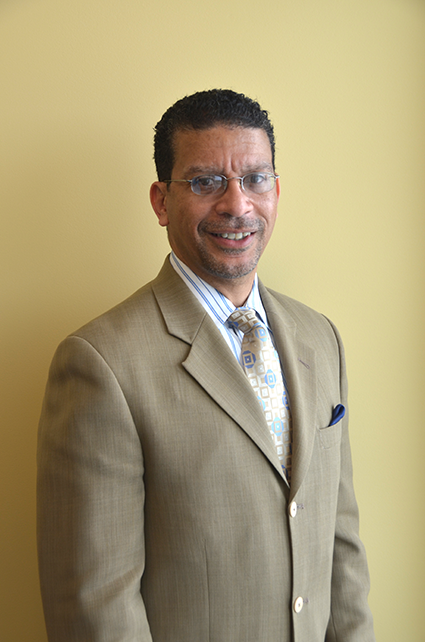
Tony Love named new Vibrant Communities director

By Melissa Lauber
UMConnection Staff
Love, who is also the conference chair of the Board of Trustees, takes over from the Rev. Andy Lunt, who will return to retirement on June 30. The position will now be full-time.
In his new appointment, he will be building on the Vibrant Communities ministry, which has included starting eight new faith congregations in the past two years and assisting several existing congregations with strategies for growth.
Q: You were recently appointed to serve as Director of Vibrant Communities for the Baltimore-Washington Conference. Which part of this ministry are you most looking forward to?
A: Beyond building upon the work already started by our Office of Vibrant Communities, I am excited about helping our churches and new faith communities to introduce all persons to Jesus Christ as friend, Lord and Savior, as we share the Gospel and make our presence known and real in our “back yards and beyond” through our love, our witness and our service.
Q: Within the last year, the BWC launched eight new faith communities, but before that we did not have a lot of success in creating new churches. Have we, as a conference, turned a corner? What do you think might be some of the most important challenges and opportunities facing us as a conference?
A: I celebrate our starting eight new faith communities, and our commitment to launch new communities in the future, but I would not say that we have turned the corner yet. I believe that our success will come when we are not only starting new faith communities but also we find these communities being stable and sustainable to have a lasting impact for Kingdom-building. I would suggest that given many current trends and understandings, our conference will need to be open to departing from our “conventional” vision of what a new community of faith looks like and how it operates. This will be a risky but necessary challenge we will encounter if we are sincere about offering new persons a faith relationship with Jesus Christ.
Q: Do you have a specific style of leadership? How would you describe it?
A: I would describe my style of leadership as open and collaborative. I believe the Holy Spirit is at work in the Church and in our leaders, and I want to be a partner with them as we cast a vision for the future together.
Q: Sometimes the church development portion of Vibrant Communities gets overlooked. Are there one or two lessons, ideas or best practices that you would encourage our churches that are struggling to consider?
A: Prayer is, and should be, the starting point for churches that are struggling. I affirm that a congregation who prays together starts to see evidence of God’s presence in their midst. Following prayer, the church can begin the process of discernment: who are we as a church? What has God given us, which often leads us to see what God is calling us to do, for the sake of our community? From discernment, the church seeks to become equipped to do the work of ministry and mission.
Q: What role do metrics play in your thinking about vibrant congregations?
A: I affirm that metrics are important and necessary as a way to measure effectiveness and fruit, as we strive to reach new disciples and grow disciples for the world’s transformation. I can appreciate when metrics provide the space and opportunity for honest and candid conversation to occur, especially when there must be a reconsideration of a current thought or direction. Metrics are one tool to evaluate the health of a community. All churches, regardless of size, can be vibrant communities. Health and vitality are important hallmarks to be considered at every church.
Q: How would you define the current, and then perhaps the best, relationship between a local church and the annual conference?
A: I think the best relationship that can exist between the local church and an annual conference comes when all persons provide mutual respect, extend grace, and show a willingness to work toward the fulfillment of God’s plan and purpose.
Q: If you had to cast an initial vision of what you want to accomplish in the first year of this ministry, what might it entail?
A: I would like for the Office of Vibrant Communities to become an integral part of the life and language of every local church and new faith community in this conference by continuing to provide leading-edge training to empower and equip our clergy and laity. We should inform and inspire a culture that is invitational and intentional about discipleship and evangelism.
Q: How would you describe yourself?
A: Wow, this question is difficult for me to answer. I am a “sold out” disciple who seeks to grow in Christ daily; a man of prayer who finds joy in helping others grow in their faith; and I try to bring joy, hope and laughter to my work. I’m a collaborator who is relational and committed to build upon the legacy of the Vibrant Communities. And I am a visionary who wants to see this ministry go to the next level.
Q: What’s the first thing you look forward to doing after July 1?
A: Believe it or not – after I settle into the office, I actually can’t wait to start traveling throughout our conference to hear and learn the inspiring stories of how God is moving in our local churches. I’m excited to see where opportunities are being created and formed to invite and grow persons into a new faith relationship.
Q: Any other thoughts for the moment?
A: Yes, I ask for prayer … that I will remain open and faithful to the Holy Spirit’s leading as together our conference and our Vibrant Communities’ office reach out to disciple all persons through our existing congregations and in new places.

Login/Register to leave comment